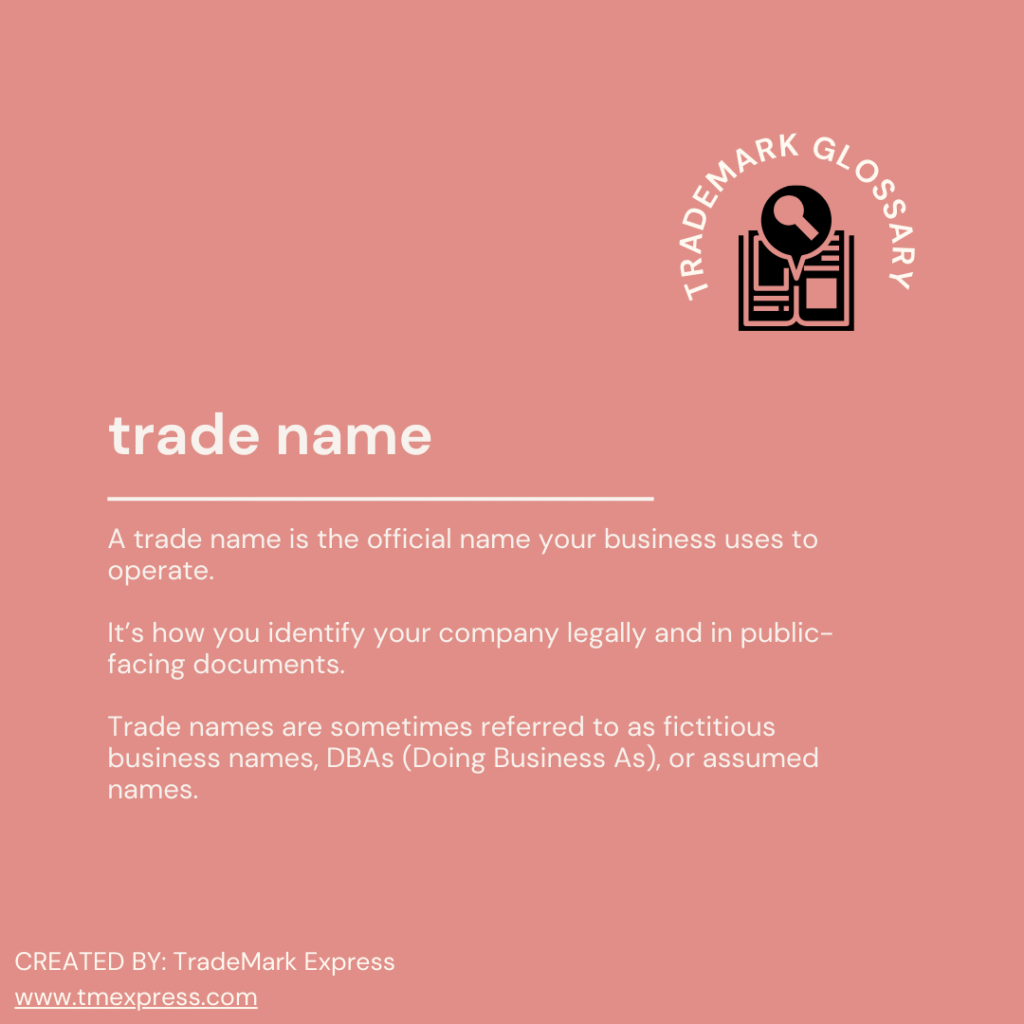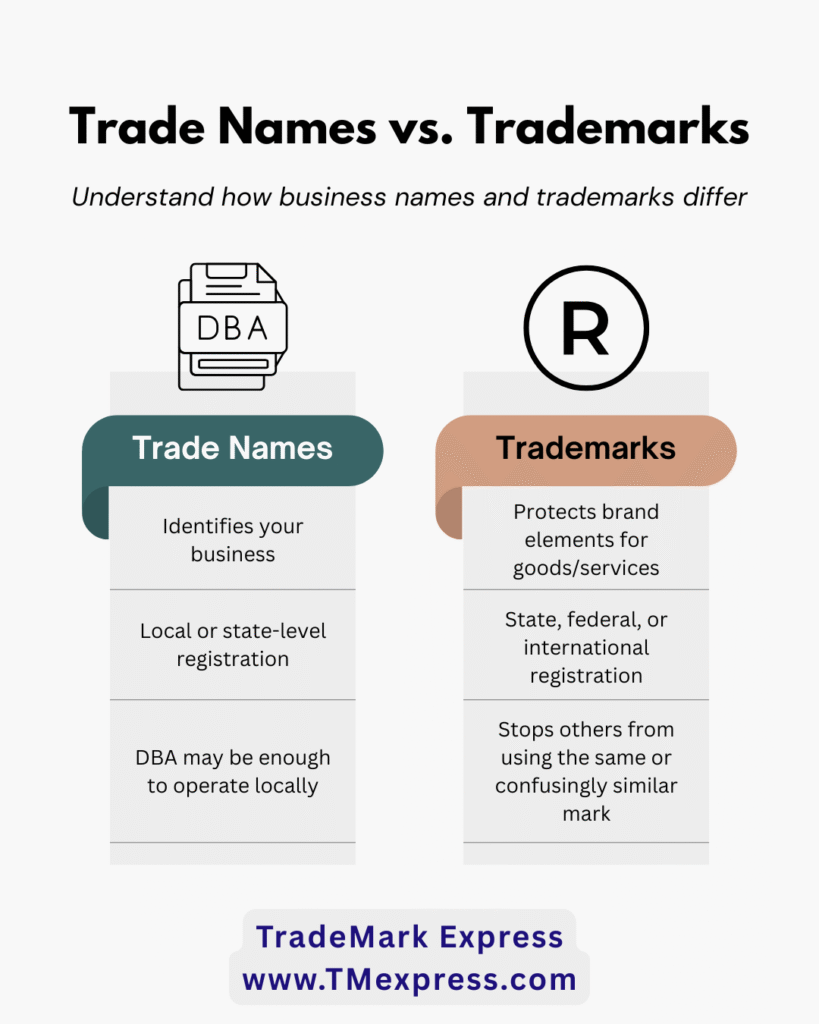Trade Names vs Trademarks
When starting a business, one of the first decisions you make is choosing a name. But not all names are created equal, and understanding the difference between trade names and trademarks is essential for protecting your brand. Many small business owners, startups, and entrepreneurs confuse these terms, which can lead to legal headaches or lost branding opportunities.
What is a Trade Name?
A trade name is the official name your business uses to operate. It’s how you identify your company legally and in public-facing documents. Trade names are sometimes referred to as fictitious business names, DBAs (Doing Business As), or assumed names.

For example, if “Sunny Foods LLC” operates under the name “Sunny Treats,” “Sunny Treats” is the trade name or DBA. Trade names identify your business itself, but they don’t automatically protect the products or services you offer.
What is a Trademark?
A trademark, on the other hand, protects a brand element such as a name, logo, slogan, or symbol that distinguishes your goods or services from others. Trademarks can be registered at the federal or state level, or they can exist based on Common Law use (meaning they are used in commerce even without registration).

Unlike trade names, trademarks provide legal tools to prevent others from using confusingly similar marks and help your brand stand out in the marketplace.
Key Differences Between Trade Names and Trademarks
Understanding the distinction between a trade name and a trademark is critical:
- A trade name identifies your business, while a trademark protects the brand elements that identify your goods or services.
- A business can have a trade name without a trademark, but a trademark provides broader protection nationwide.
- Trade names are registered locally or at the state level, while trademarks protect goods or services and can be registered statewide, federally, or even internationally for stronger rights.

In practical terms, using a DBA or assumed name may be enough to operate locally, but it doesn’t prevent another company from using the same name for similar products. That’s where trademarks become essential.
The Importance of a Comprehensive Trademark Search
Before settling on a business or product name, conducting a thorough trademark search is crucial. Proper research helps you avoid conflicts and legal disputes down the line.
Key elements of a comprehensive search include:

- Federal trademarks: Check the USPTO database to see if your name or similar marks are already registered nationwide.
- State trademarks: Look for local protections in your state.
- Common Law usage: Even unregistered names can be protected if someone is already using them in commerce. This includes small businesses, online sellers, or local shops.
- Similar marks: Research marks that are similar in sound, appearance, or meaning. Even small similarities can cause confusion.
- Related goods/services: Consider whether your name is being used for products or services in the same industry. Conflicts can arise even if the exact product is different.
Skipping these steps can be risky.
Risks of Skipping Proper Research
Skipping a proper trademark search can create serious problems for your business. You might face legal disputes if another company claims your name infringes on their trademark. Rebranding after launch can be costly and disruptive, and market confusion may harm your reputation and erode customer trust.

Even if your trade name appears available, it may not be safe to use for your products or services without first checking for potential trademark conflicts.
Benefits of Federal Trademark Registration
Registering your trademark federally offers several important advantages.

Your mark is publicly listed in the USPTO database, creating a clear record of ownership. Federal registration provides a legal presumption of ownership and the exclusive right to use the mark nationwide for the listed goods or services. It serves as a basis for international registration and allows you to sue in federal court if someone infringes your mark. You can also use the ® symbol to signal your protection and even prevent the importation of infringing goods through customs enforcement. These benefits strengthen your brand, provide legal tools to protect it, and support your business growth.
Next Steps for Business Owners
To ensure your brand is protected:
- Have a thorough search conducted before finalizing a name, including federal, state, and common law sources.
- Consider registration and monitoring to safeguard your brand over time.
- Work with a trademark professional to ensure your research covers all potential conflicts and your application is properly prepared.
Protecting your brand starts with understanding the difference between trade names and trademarks. Doing it right from the beginning can save time, money, and stress later.
Ready to secure your brand name?
Contact TradeMark Express for comprehensive trademark research and application assistance. We help businesses navigate federal, state, and common law trademark searches so you can confidently protect your brand.
